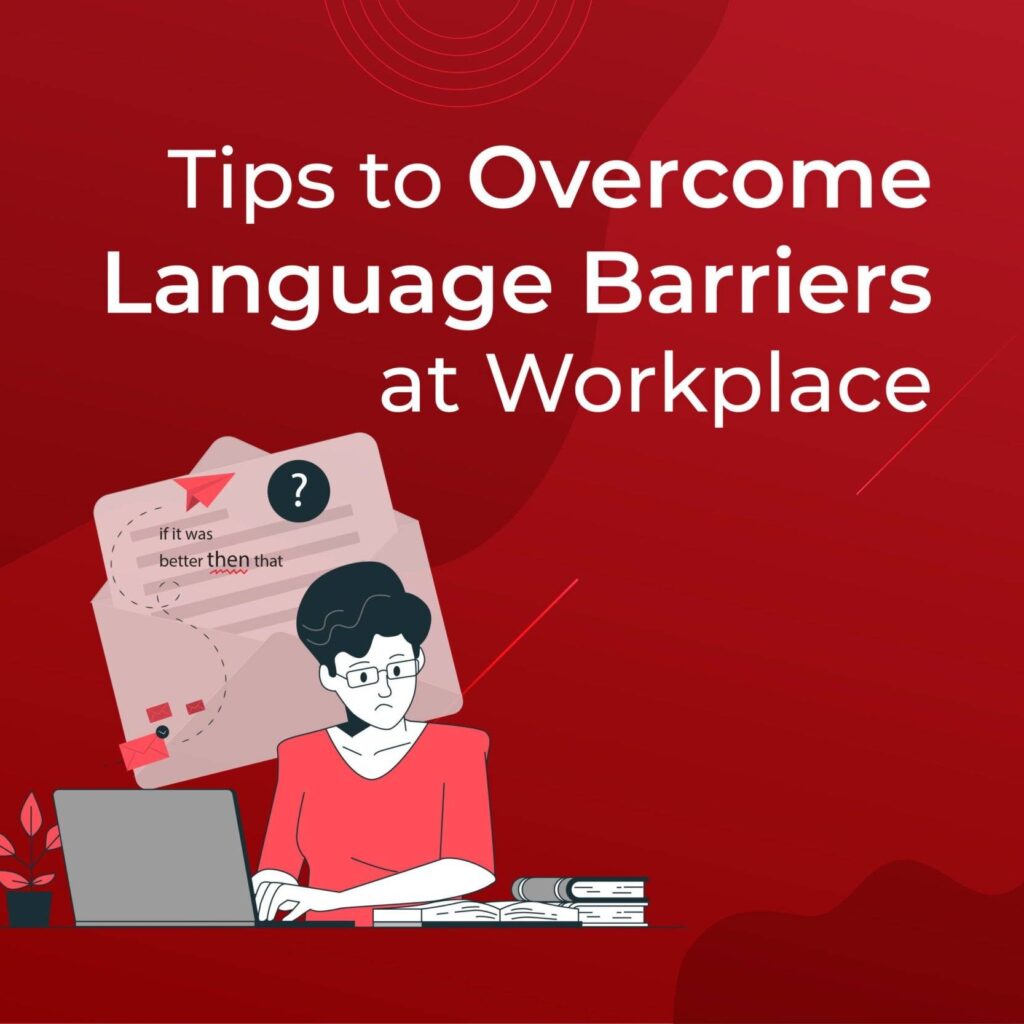Global trade and communication have greatly increased the world’s diversity. While most of us are now more open to new experiences, cuisine, and friendships, dealing with linguistic and communication limitations can be challenging.
Most people now frequently work with coworkers from other countries as more and more businesses become multinational. This occasionally results in embarrassing cultural gaffes. Communication difficulties arise when working with individuals from different nations. There will inevitably be misunderstandings even if there is an “official language” in the office.
Here are the top tips for preventing language barriers at work.
What is a Language Barrier?
The ability (or inability) to grasp what people are saying is our biggest challenge, regardless of our communication methods. If the words make sense to other people, every chat, email, report, and memo will be useful. Because there needs to be a clear understanding of what to accomplish or how to do it, it will be difficult for you to carry out ideas effectively as a team.
Any linguistic restriction that causes misunderstanding or obstructs comprehension is a language barrier. National and cultural languages may be referred to as a barrier, but they may also refer to specialised knowledge or speech difficulties.
Overcoming Language Barriers:
- Use Plain Languages
Everyone at work should develop the habit of utilising simple English wherever possible, whether communicating with coworkers whose native tongue is different or trying to explain a technical issue to non-technical coworkers.
Jargon and obscure words increase the chance of misunderstandings and make people feel foolish for not understanding you. The idea is to instil a culture of straightforward communication and simple language in your business.
- Use Visual Methods
When words fail us, showing is frequently far more powerful than telling. For difficult concepts, use pictures and diagrams to explain them. In addition to helping people think more imaginatively about possible solutions, visual signals are crucial for getting everyone on the same page.
Get into the habit of attaching these resources to your written messages if you send them mainly via email or chat applications to clarify company initiatives and respond to frequently asked queries.
- Facilitate Comfort
It can be beneficial to provide or support some out-of-office talk and activities, given the workplace culture. When there is less risk—for example, when there is no need to contribute in a useful way to a professional conversation—it is frequently simpler to communicate and understand.
Employees will be better able to interact calmly and efficiently at work when they feel more at ease and familiar outside the workplace. In the end, cultivating a culture of respect and curiosity is essential to overcoming a language barrier in a professional environment.
- Language Classes
Provide language classes if needed. Teach them the vocabulary, expressions, cautions, and other essential communication skills they need to meet your performance expectations. Teach the fundamentals first.
Give all your staff survival training in the language that predominates at work. Later, if you have the desire and the means, you can give your staff members more chances to gain the language proficiency they require to succeed at work.
- Discuss Cultural Differences
Workplace issues may result from cultural differences. If small things like these are ignored, they can lead to larger problems between people. It is beneficial to inform your staff about potential cultural misunderstandings. This might range from how people sit in their chairs to how they converse.
Conflict can arise when people wrongly believe that someone is being impolite on purpose due to cultural differences. That is only sometimes the case, and the problem is usually one of cultural miscommunication. Catching these problems early can benefit the situation in the long run and foster a more pleasant workplace.
Moving Forward
A process of trial and error is required to overcome a language barrier at work. There will be laughter and frustrations along the way, but it will be a truly rewarding experience. You might discover that studying other people’s languages and cultures appeals to you.
The good news is that all it takes to get through them is the appropriate mindset coupled with Techmindz’s successful strategy, which centres on focused practice.














0 Comments